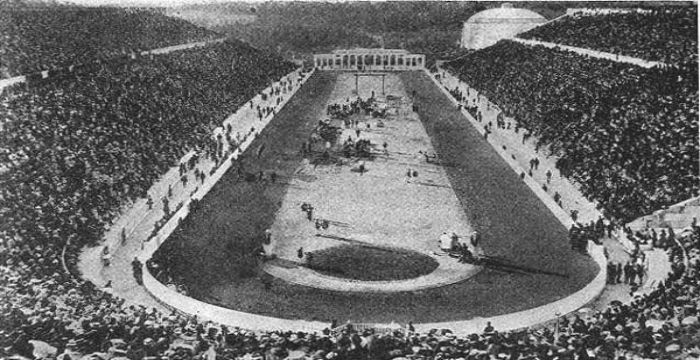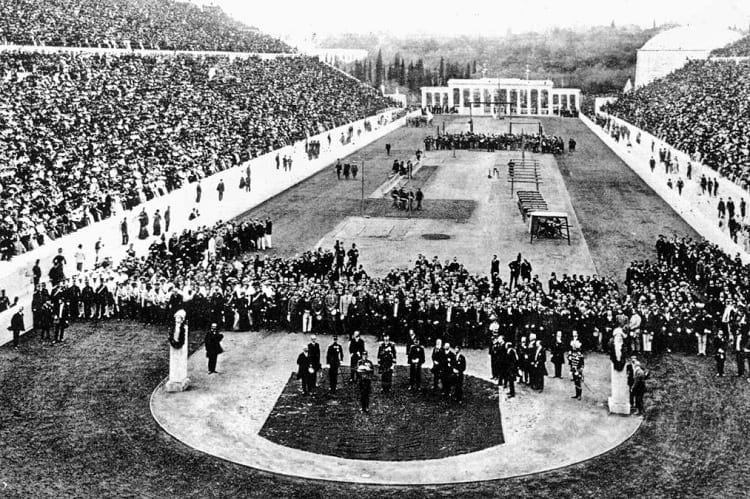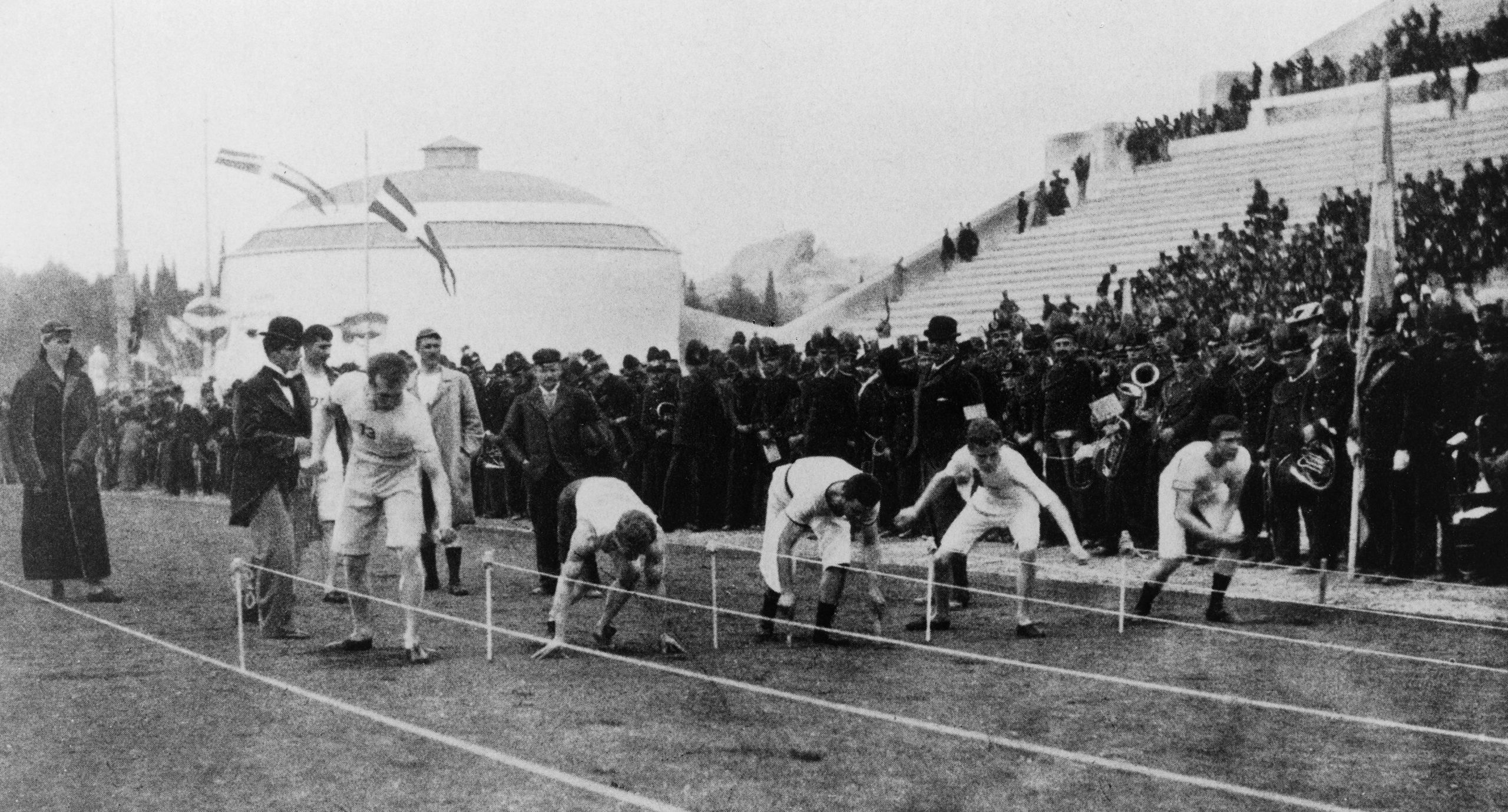Featured
On this day in 1896, the first modern Olympic games were held

Before the prestigious Olympic Games became the spectacle it is today, it began as a modest ensemble of athletes in Athens on April 6, 1896. But the earliest reliable date that recorded history gives for the first Olympics is 776 B.C., as is presumed by most historians. From 776 B.C., the Games were held at Olympia every four years for almost about twelve centuries.
The Ancient Olympics
Contrary evidence, literary as well as archaeological, suggests that the Games may have existed at Olympia much earlier than this date, perhaps as early as the tenth or ninth century B.C. Remarkable, isn’t it? The first few games were limited to one race on one day, allowing only men to compete and attend. Years later, a number of other events were added, including horse and chariot racing, boxing, wrestling, and a host of military competitions. The pentathlon introduced in 708 B.C., according to the earliest records, comprised foot race, spear throwing, long jump, discus and javelin throw events, besides wrestling.
By the time when the 37th Olympiad propelled the sporting domain out of obscurity and into the global spotlight, the format was extended to about five days of competition. The growth of the Olympics fostered a one-of-a-kind ‘professionalism’ among the ones participating in it. The promise of its long-lasting dynamism, unfortunately, turned out to be short-lived. In A.D. 394, the Games were officially ended by the Roman emperor Theodosius I, who felt that they had pagan connotations to look back upon.
 1896 Athens Olympics | Source: STSTW
1896 Athens Olympics | Source: STSTW
The Modern Olympics
Unlike the original Games, the revival of it in the year 1896, holds a clear, concise history. With the ancient Games having been staged at Olympia in Greece, from 776 B.C. through 393 A.D., it took about 1503 years for the Olympics to return. The first modern Olympics were held in Athens, Greece, in 1896.
Years after A.D. 394, Europe began staging a series of informal and folkloric sporting festivals, initially dubbed the ‘Olympic Games’. Soon, a young French nobleman named Pierre de Coubertin was under the impression that he could institute an educational program in France that approximated the ancient Greek notion of a balanced development of mind and body. However, the Greeks themselves had tried to revive the Olympics by holding local athletic games in Athens during the 1800s but without lasting success.
Also read: Tokyo Olympics 2021 dates announced. Read to know
First Modern Olympic Games
Coubertin’s initial thought was to unveil the modern Games in 1900 in his native Paris, but delegates from 34 countries were too enthralled with the concept that they convinced him to move the Games up to 1896 and have Athens serve as the first host.
Little could its 280 participants from thirteen nations have envisaged the extent of the history they were making when they gathered to compete in 43 events, covering track-and-field, marathon competition, swimming, gymnastics, cycling, wrestling, weightlifting, fencing, shooting, and tennis, in the Panathenaic Stadium in Athens.
A 14-man U.S. team dominated the track and field events, taking first place in about nine of the twelve events. The Games were beyond just a success, and a second Olympiad, to be held in France, was quickly scheduled. Despite a severe financial strain, the 1896 Games proved to be a success, certainly much more than the ungainly episodes that were to follow.
 1896 Athens Olympics | Source: Bustle
1896 Athens Olympics | Source: Bustle
The Games were held in 1900, followed by 1904. Much to everyone’s delight, the number of competitors more than quadrupled the number at Athens in the next year.
While that was decades ago, the first Athens Olympic Games reflected what still stands true today: a dominated sporting fervour and athletes being catapulted into fame beyond their sports. It was the first of many Summer Olympics to come, setting a standard for future competition.
Recognition And Popularity
Beginning in 1924, a Winter Olympics event was included, to be held at separate cold-weather sports spot in the same year as the Summer Games. However, the Summer Games, with its wide array of competitions, were still the focal point of the modern Olympics.
The same year, the Summer Olympics in Paris was what Coubertin called ‘unprecedented success’, one that saw more than 3,000 people from 44 nations as participants, hundred of whom were only women.
Among the standard competitions were basketball, boxing, canoeing and kayaking, cycling, equestrian arts, fencing, field hockey, gymnastics, modern pentathlon, rowing, shooting, soccer, swimming and diving, tennis, track and field, volleyball, water polo, weight lifting, wrestling (freestyle and Greco-Roman), and yachting. At every Olympic Games, a new spot was added to the roster.
Olympics Over The Years
The Games continued to grow more each year, and at the 2000 Summer Olympics in Sydney, nearly 10,000 athletes from across 200 countries competed. Four years later, the Games returned to its provenance, with more than 11,000 athletes competing from around the globe.
 1896 Athens Olympics | Source: Mental Floss
1896 Athens Olympics | Source: Mental Floss
To begin with, there is more of nearly everything in today’s Summer Olympics, more countries, more sports, more participants, more competitions, and more medals. The last few decades have brought additional events and competitors. The role of media has added to the spectacle of the hugely popular competition, and our athletes have continued to grow into aspirational representatives of their individual countries.
And, it was not until Athens in 1896 that this Olympic movement truly shaped an approach still recognisable in many aspects to this day.






